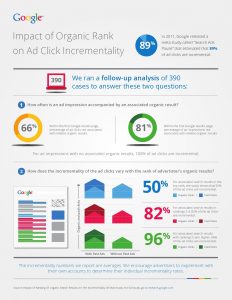
In order to improve your rankings, you must focus on the user experience. The user experience is becoming an increasingly important aspect of search engine optimization (SEO). Google began prioritizing user experience as a ranking factor as early as 2021. Users’ behavior will determine how well your site ranks. The in-search elements and Featured Snippets pull valuable information from your website onto the search page. You must focus on the needs of your customer.
A good SEO strategy will improve your site’s ranking by ensuring that users find relevant information. Search engines consider websites that appear on the first page of search results to be of high quality and trustworthiness. By incorporating good SEO practices into your website, you can boost your traffic and enhance your overall user experience. You can outrank your competition by deploying good SEO on a consistent basis. There are many benefits to SEO, so read on to learn how to optimize your content.
Keyword research is crucial to achieving high rankings. When choosing keywords, you should focus on terms that have high search volume. Look at what your competitors are using to improve their ranking. You can also use schema markup to increase your page’s click-through rate. When using keywords, make sure to choose specific terms that your target market uses. A keyword that has too many variations will not increase your ranking and is not related to your website’s content.
Search engines prioritize reliable sources. When ranking pages, search engines look for authority, relevance, and trustworthiness. Web design also plays an important role. Google considers how your website looks in different browsers and devices, as well as how quickly your pages load. If your site looks good on all of these factors, your website will be able to rank highly on search results pages. You will gain traffic, but you will be spending money on a website that you don’t need.
While search engine ranking is essential for any website, you must also consider the local SEO for your location. Local SEO differs from global SEO, as it targets smartphone users. By analyzing other factors and focusing on your location, you can provide the most relevant content for your target audience. The results of your local search will be based on your location and not your website’s global ranking. The local search results will often contain your company’s contact information.
Besides optimizing your page for local search, you must also optimize for the keywords your potential customers type into search engines. Keywords can be split into two categories – informational and product. If your eCommerce site sells tennis shoes, for example, you’ll want to optimize the pages around both types of keywords. When researching keywords, use keyword research tools like the Keyword Magic Tool and the Keyword Overview tool to make the right choices. By doing this, you can increase the chances of your website ranking on search results.
Paid search results are the next step in the conversion funnel. AdWords ads are displayed above the organic results. Google’s ads are paid, and advertisers pay to be ranked on them. These ads are often very similar to the search results and, therefore, most users click on them without even realizing they’re being targeted. So, your ad needs to look as natural as possible to gain visitors. But this is just one example of a supplemental benefit of SEO.
Another aspect of SEO is website speed. Search engines evaluate the speed of a website and determine its quality based on how long it takes for the page to load. A webpage that takes too long to load can be penalized by a search engine. To test your site’s speed, use Google’s Page Speed Insights Tool. Using this tool will tell you what to improve to make it load faster. You can even make your page more search engine friendly by implementing these techniques.
Another important SEO technique is on-page optimization. On-page SEO involves making sure that Google can find the web pages that contain relevant content. Google scans web pages for specific words and phrases that are often repeated throughout the page. Optimizing for your target keywords on your site’s pages will help your website rank higher in SERPs. But it’s also important to optimize for relevant keywords. So what do these three strategies have in common?







